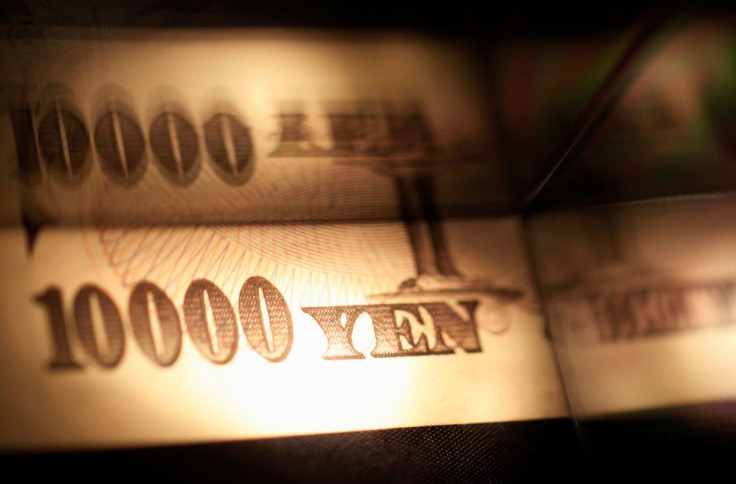Euro Hits 7-year Peak Vs Yen Ahead Of ECB Announcement

The euro hit a seven-year peak against the yen on Wednesday ahead of a European Central Bank (ECB) rate-setting meeting on Thursday that is likely to leave the Bank of Japan (BoJ) standing alone with ultra-loose monetary policy.
The yen has now fallen for 10 consecutive trading sessions against the euro, its longest losing streak in eight months, and reached a seven-year low of 142.84 per euro in early European trade.
The euro slipped 0.1% against a broadly stronger dollar to $1.06885, leaving it within recent ranges ahead of the ECB's meeting tomorrow.
"EUR/USD has held up quite well in the face of this week's dollar strength," ING analysts said, noting that the prospect of a hawkish ECB had supported the euro.
The ECB is widely expected to announce an end to bond purchases this month, which would pave the way for a first interest rate rise in 11 years in July.
Money markets are now pricing in 75 basis points of increases by September, implying traders expect a 50-basis-point hike at either the July or September meeting.
The Federal Reserve looks all but set to raise its interest rate by 50 basis points for a second consecutive meeting next week, in contrast to the BoJ, which has shown no signs of ending its easy policy stance.
The US 10-year yield is up 3 basis points, consolidating around the 3.0% mark after breaking back above that level on Monday.
Spreads between 10-year U.S. and Japanese debt held at 277 bps, not far from a 3-1/2 year high of 292 bps hit last month.
This has helped push the dollar to a 20-year peak of 133.47 yen, with the Japanese currency losing around 5% versus the greenback in the past eight trading sessions.
"When yields move, dollar-yen moves; that's why it looks a little abrupt in the price action," said Lars Sparreso Lykke Merklin, senior analyst at Danske Bank.
"Indeed, the monetary policy of holding their ground amid everyone else moving to hike is causing yen to weaken," he added.
Even so, there are still few signs that the BoJ might step in to support the currency.
BoJ Governor Kuroda told parliament on Wednesday that yen weakening was positive to the economy as long as moves were stable, and he added that FX policy was not the authority of the BoJ.
Elsewhere, the pound fell 0.2% against the dollar to $1.2566, shrugging off political uncertainty surrounding Prime Minister Boris Johnson.
The aussie and kiwi were both weaker, falling 0.35% and 0.55% against the dollar, respectively.
China's yuan was not immune from the dollar strength, easing against the greenback as it was pressured by market worries over increasingly divergent monetary policy stances between China and other major economies.
In cryptocurrencies, bitcoin was down 2.4% but above the $30,000 threshold, while ether was down 1% at $1,793.
© Copyright Thomson Reuters 2024. All rights reserved.







